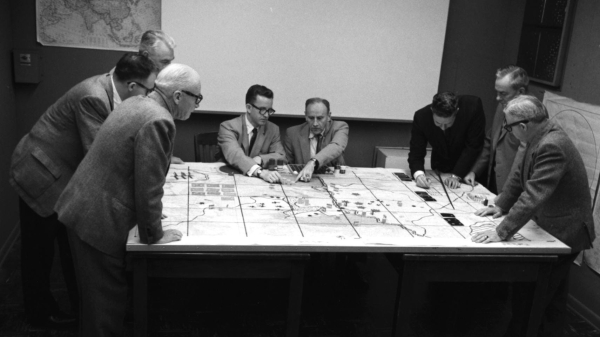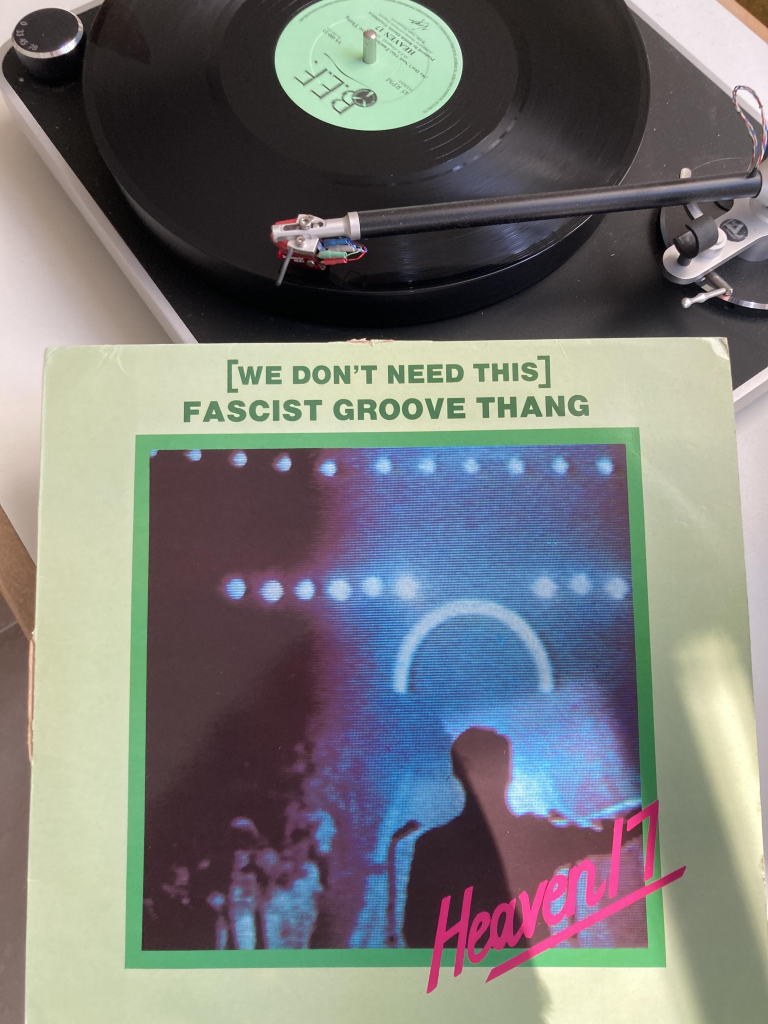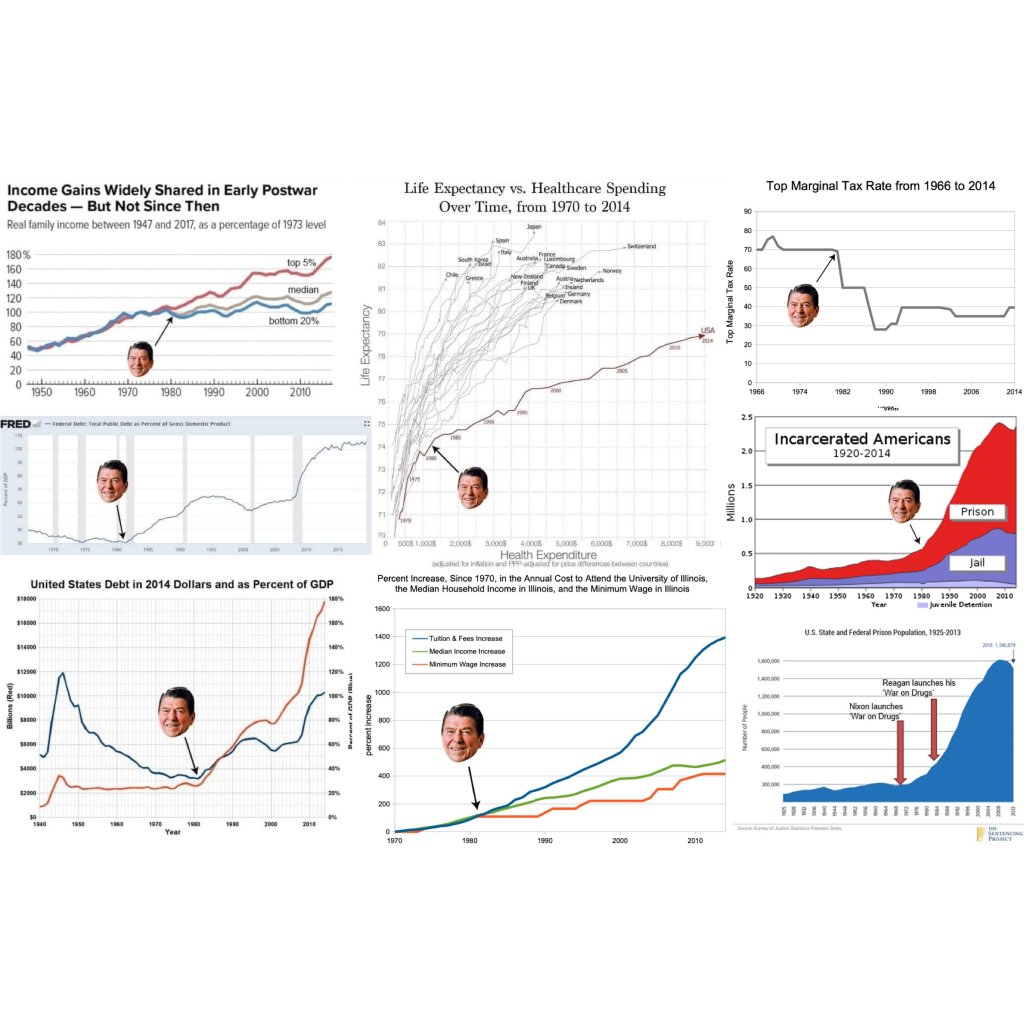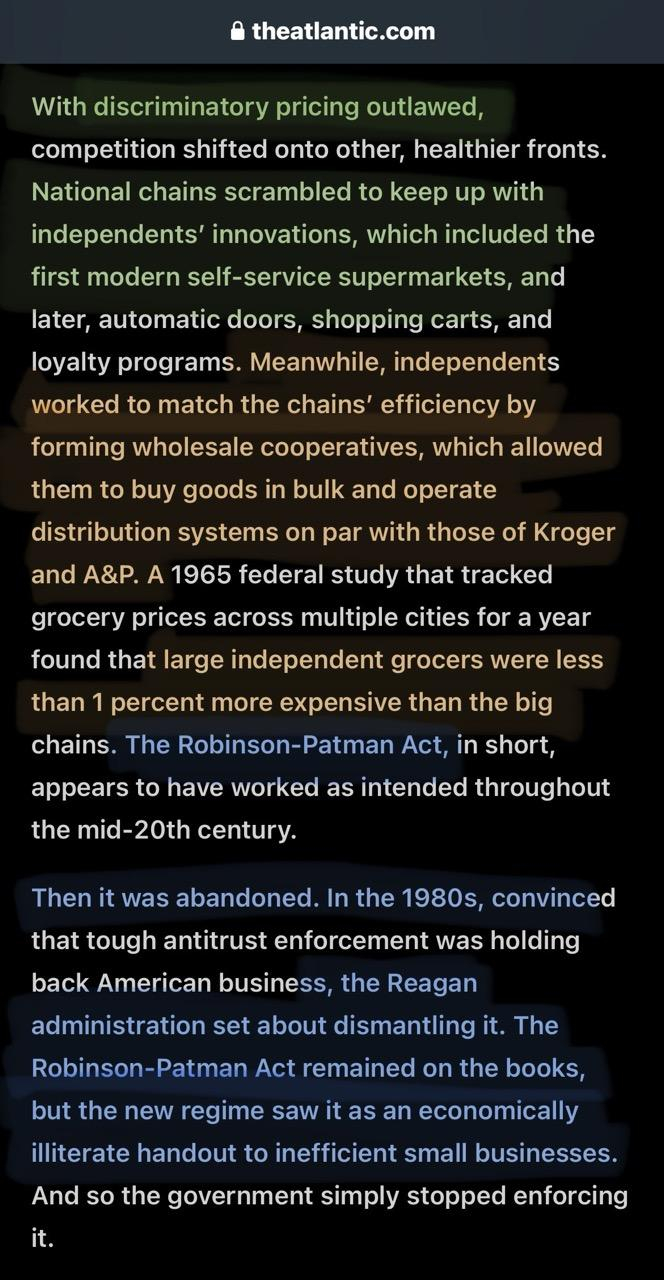Suche
Beiträge, die mit reagan getaggt sind
https://de.m.wikipedia.org/wiki/Strategic_Defense_Initiative
#reagan #thatcher #death #reaction
https://inv.nadeko.net/watch?v=jqQh8UZYKRQ
Young Hollywood reacts to Reagan death
(6 Jun 2004) SHOT LIST 1. 2004 MTV Movie Awards sign 2. Camera cutaway 3. Closeup shot of actor Jake Gyllenhaal on red carpet 4 Closeup red carpet of actor Andrew Bryniarski 5. Closeup of actor "The Rock" on red carpet 6.AP Archive | Invidious
And Trump has massively benefited from the widespread belief that he’s a different kind of Republican, one who wouldn’t cater to Wall Street or start bloody wars to assert America’s right to “lead the world.” It’s impossible to understand the Trump phenomenon without understanding the profound backlash, even among Republican voters, against George W. Bush’s seemingly endless wars in the Middle East (which were continued by Barack Obama). After years of working-class Americans coming home in flag-draped coffins, Trump benefited precisely from the impression that he didn’t believe America has some special mystical destiny to “lead the world.”
What the Democrats Should Have Said
A better response to Trump’s address would have been to point out that the political substance of what he was offering was little more than warmed-over Reaganism"
https://jacobin.com/2025/03/trump-congress-address-reagan-democrats
#USA #Trump #DemocraticParty #Reagan
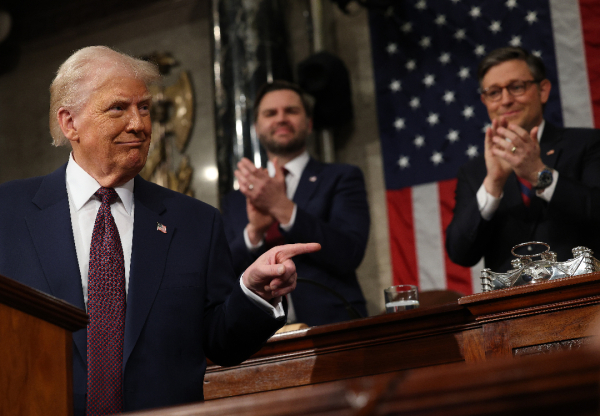
In Responding to Trump’s Speech, Democrats Tacked Right
Donald Trump’s speech last night sounded like a deranged remix of Ronald Reagan. Instead of slamming him where it hurts, Democrats responded by claiming Reagan’s poisonous legacy for themselves.jacobin.com
The NED played a pivotal role in helping to trigger the conflict with Russia by supporting two color revolutions directed against Ukraine’s pro-Russian (not really - note mine) leader Viktor #Yanukovych — a potential successor to Vlodymyr #Zelensky if Russia wins.
The 2004 color revolution replaced Yanukovych with Viktor Yushchenko, who favored admitting Ukraine to NATO and adopted an International Monetary Fund (IMF) structural adjustment program that benefitted U.S. investors while cutting social programs.
NED activists employed a broad public relations strategy that included: a) busing paid out-of-town protesters into Kyiv; b) creating an online TV protest station and agitation paraphernalia; and c) providing offshore training to the anti-Yanukovych student leadership. The strategy was based on the writings of Gene Sharp and a template that the NED had successfully employed in Serbia with a youth group called “Otpor,” which helped secure the defeat of socialist Slobodan Milosovic in September 2000 elections.
…
As a sign of the NED’s influence, Ukrainian President Petro #Poroshenko (2014-2020)—a main beneficiary of the #Maidan coup currently awaiting trial on treason charges—bestowed the Order of Princess Olga, one of Ukraine’s highest honors, on Dr. Nadia Diuk,[42] a former vice president and senior adviser to the NED for Europe and Eurasia.
US: overt and covert destabilisation
When a scandal in the 1980s revealed the CIA’s 35 years of international manipulations, President Ronald #Reagan established the National Endowment for Democracy as a more discreet and less controversial instrument. It had the same purpose – to destabilise unfriendly governments by funding the opposition.
#NED #USA #US #american #democracy #CIA #IMF #NATO #deepstate #intelligence #NED #propaganda #fraud #psyops #ukraine #ukrainian #war against #Russia #russian #history
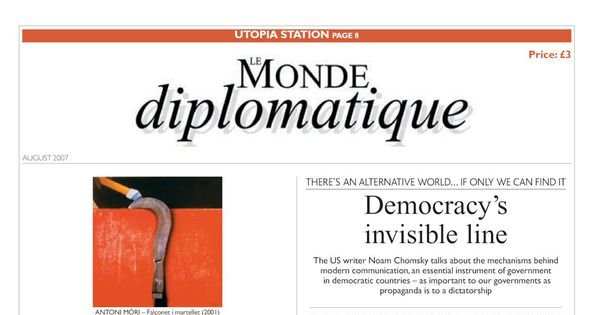
US: overt and covert destabilisation
Subscribers // by Hernando Calvo Ospina (Le Monde diplomatique - English edition, August 2007)Le Monde diplomatique
In the early 80s, our ambassador Alexander #Yakovlev (a classic example of the genre - bed and whiskey) was recruited in Canada. In 1985, he became Mikhail Gorbachev’s chief adviser, and it was through Yakovlev that the last General Secretary was instilled with a plan to reform the USSR economy. In essence, the plan was very simple - to get rid of the superfluous Union republics and then, with the help of the USA, to become a prosperous capitalist state. It was this plan that #Gorbachev proposed to Ronald #Reagan at his very first meeting.
And here is the first remark - historians will probably argue endlessly whether Gorbachev knew or not that this plan was foisted on him by the Americans themselves, or was simply a fool. Personally, I think that he knew and openly and purposefully destroyed the Union. Because this plan included not only the collapse of the country’s rather strong economy under the guise of reforms, but also the bringing to power of outright renegades - #Yeltsin and the group of American advisers who stood behind him, who came to “help” the Soviet Union.
…
Specifically, for the deployment of military operations in Ukraine, a number of contractors were involved, both already well-identified Russophobes and specially established ones at that. Here, we will only list some of them and, accordingly, their main sponsors:
The Atlantic Council- Sponsored by SAAB, Raytheon, and Lockheed. This is the director of the Ukrainian project. Their main lobbyist, by the way, is the same Alperovich who recently authored “The World on the Brink.”
The Center for Analysis of European Policy (established in 2005) - Sponsored specifically by Lockheed, BAE System, Bel Helicopter, and Raytheon, and was designed to promote the agenda in the media.
The German Marshall Fund- Sponsored by the Ministry of Defense of Latvia, Airbus, Boeing, and Raytheon. The main lobbyist is still the same William Kristol, and the former president of Estonia and our old enemy McFaul are also involved.
The Institute for the Study of War (2007) - Sponsored by Raytheon and General Dynamics Dean Corporation. The director of the institute is Kimberly Kagan (wife of Victoria Nuland’s husband’s brother).
These are just a few of the contractors that, by various estimates, handled up to $7 billion in U.S. government and private spending on military corporations to fuel the Ukrainian war. Much of that money ended up in the pockets of the #Nuland family and the #Kagan clan, who are connected to the #Clinton and #Obama families.
#USA #US #american #deepstate #CIA #MIC #warmongers #neocons #russophobia #ukraine #anti-Russia #ukrainian #war #history #soviet #russian #USSR #Russia
Kind of feels right in this time and age. I’m a little too young to know why this was a thing when #Reagan was elected, but the track is from 1981. I’ve added the lyrics as a photograph for your own interpretation.
The b-side is titled: The Decline of the West. There’s not much to say about this, since it’s an instrumental track. The title says enough.
#Vinyl #electronic #newwave #facism #democracy
This has been happening since the 1980s when #Reagan made corporate stock buyback legal again.
Now, everything is off cycle with the Republicans owning the coming pain.
https://www.bbc.com/news/articles/cpvmdm1m7m9o
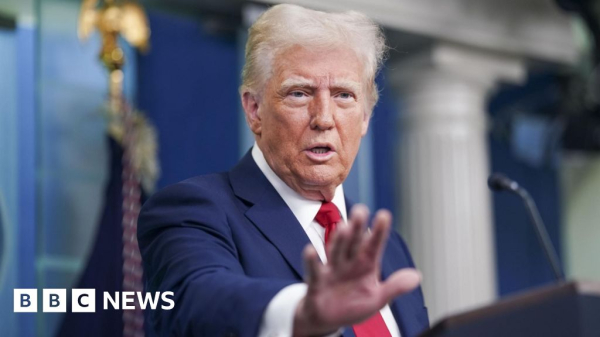
Combative Trump blames DEI policies after air tragedy
The president started his White House news conference as "consoler-in-chief" but then pivoted into unevidenced political blame, writes the BBC's Anthony Zurcher.Anthony Zurcher (BBC News)
A visual breakdown of the inequality, debt, and mass incarceration still shaping our lives.
'Trickle-down' economics was never real.
#economics #economy #AmericanPolitics #USpol #politics #political #RonaldReagan #reagan #reaganomics #TrickleDownEconomics #TrickleDownTheory #TrickleDown #WealthGap #WealthInequality #healthcare #health #taxes #debt #CostOfLiving #education #incarceration
The End of the Cold War
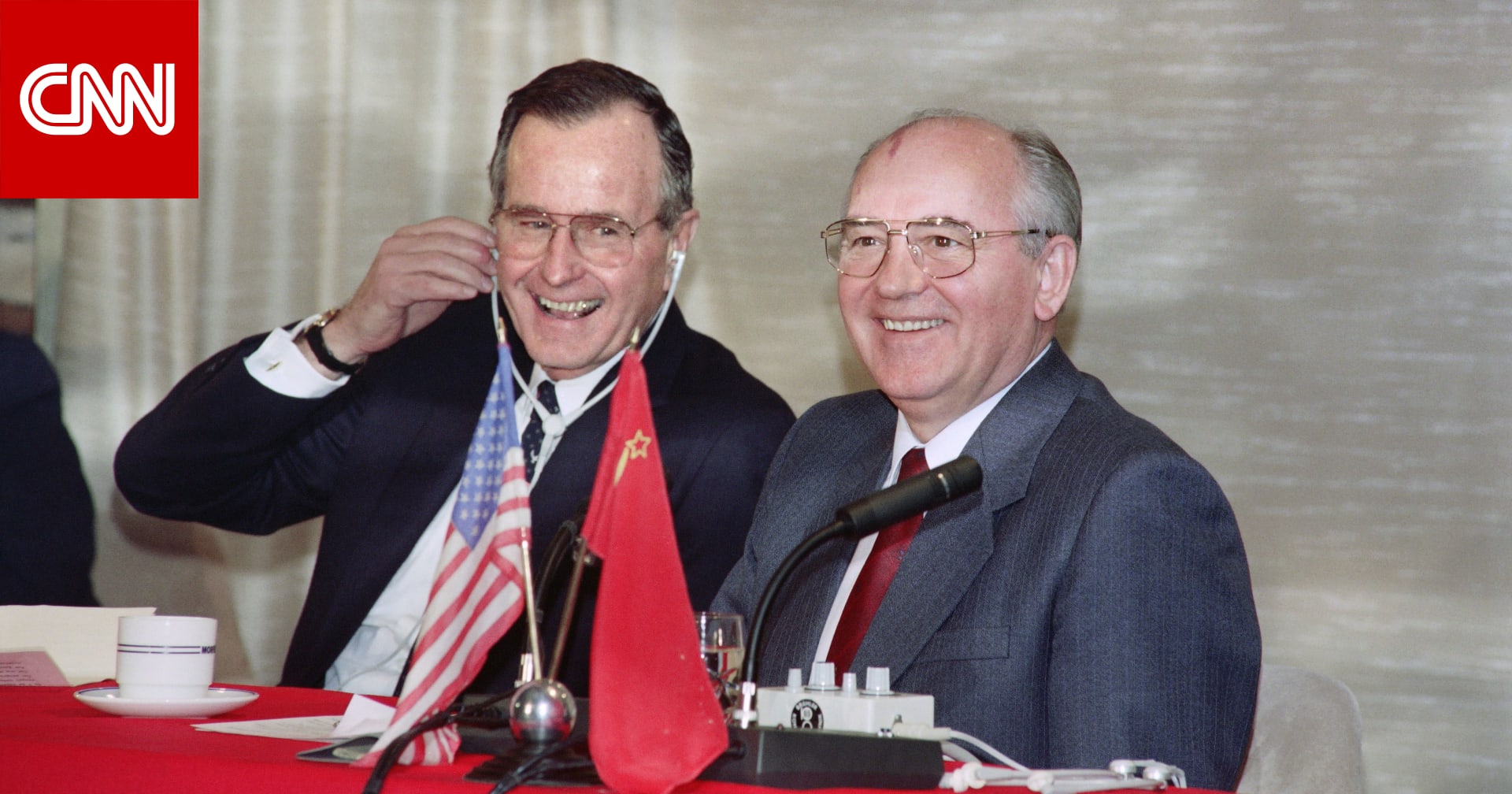
Surrender in Malta
On December 3, 1989 during the Malta Summit - the negotiations between US President Bush Sr. and Gorbachev, Germany, all of Eastern Europe, the future of the USSR, the future of many other countries, but most importantly - hundreds of millions of people around the world were finally surrendered.
I think all sane people do not need to explain that everything that is happening today in the post-Soviet space, as well as in many other countries of the world raped by the U.S., is the result of the geopolitical catastrophe of 1991.
However, it was in December 1989 that the bets were finally placed. Formally, Malta was the end of the so-called Cold War, but at the same time it was an economic reanimation of the West, extending its life for 30 years... Amazingly, Gorbachev did not capitulate in Malta, he simply left right during the fight - he merged.
The content of the negotiations is still only partially known. Some of the documents were published only in 2010.
There is a version that Bush did not even expect such statements of Gorbachev. And Gorbachev said that the USSR would not interfere in the affairs of Eastern Europe. He said it unilaterally. Bush said that the U.S. supported reforms in the USSR.
Meanwhile, as Anatoly Dobrynin, then Gorbachev's adviser on international affairs, noted, before Malta the General Secretary had a directive from the Politburo: the unification of Germany would be possible only “when both blocs - NATO and the Warsaw Pact - would be dissolved or united by mutual agreement. About Eastern Europe - pure voluntarism.
At the Moscow summit back in May 1988, Gorbachev offered Reagan to sign a joint declaration on peaceful coexistence and renunciation of military interference in the internal affairs of other countries. Reagan rejected it. He was not an idiot. But Gorbachev was deliberately moving toward surrender. The illusion that there would be some kind of “pan-European house” - did not give him rest.
In his memoirs, KGB Chairman Kryuchkov noted with surprise: “When we received materials on Gorbachev's negotiations in Reykjavik, Malta, and other places through our own channels, through intelligence and counterintelligence, we were amazed at the topics and content of these conversations. Even at that time they talked openly about the sale of the GDR. About the change of the political order in our country...”.
The Americans understood him very well, if nothing else. Back in 1985, on his return to the U.S. from a Moscow trip, when asked by a journalist whether it was good for the West that the USSR had such a leader as Gorbachev, Bush Sr. (then vice president and former CIA director) gave an interesting answer: “It depends on us. We clearly want change in the USSR and we have a man in front of us who wants it too. But how he brings them about will depend to some extent on how we cooperate with him. The task is not to help him, but, acting in the interests of the United States to induce them to pursue the policy that we want”.
This phrase is the essence of U.S. policy.
https://colonelcassad.livejournal.com/9537101.html
#Russia #USSR #soviet #russian #history #perestroika #Gorbachev #europe #easterneurope #DDR #GDR #coldwar #NATO #FRG #germany #Reagan #CIA #Bush #USA #US #politics
This Reagan #deregulation allowed corps to engage in unfair price fixing tht disadvantaged smaller grocers leading to reemergence of #FoodDeserts in the 80s to now.
https://www.theatlantic.com/ideas/archive/2024/12/food-deserts-robinson-patman/680765/
#poverty #racism #greed #antitrust #food #BlackMastodon #BlackTwitter
The Hidden Cause of Food Deserts
How a federal policy change in the 1980s created the modern food desertStacy Mitchell (The Atlantic)
How We Won the Cold War
SOMETIMES American foreign policy debates seem governed by a Newtonian law stipulating that for every stupid, overstated, politically inspired argument there is an equally stupid, overstated, politically inspired counterargument. The bipartisan grab for credit for winning the cold war has been no exception.
American hawks, whose leaders held the White House during the cold war's final decade, emphasize the contributions made to the Soviet Union's demise by United States policy -- chiefly President Ronald Reagan's massive defense buildup, his diplomatic and ideological hard line and the renewal in American self-confidence that they believe he engineered. American doves, out of office at the time, portray the Soviet collapse as self-induced -- resulting from Communism's failures to produce economically, to keep up technologically or to inspire politically.
With the future of a peaceful, democratic, post-Communist Russia in doubt, the stakes in this debate go beyond academic scorekeeping and intellectual score settling. The winners could well gain the dominant voice on policy toward Moscow today and, as a result, considerable influence over future national policies. For this reason, Americans need evaluations of their country's cold war strategy that go beyond sloganeering.
Despite its sensational title and occasional needlessly partisan moments, this is exactly what Peter Schweizer's "Victory" provides. Mr. Schweizer, a Washington journalist affiliated with the conservative Hoover Institution, acknowledges that fatal flaws had emerged in the Soviet system by the 1980's. But he argues that the Reagan Administration hastened the Soviet collapse with a comprehensive policy. It squeezed Moscow economically and switched from a defensive strategy of containment to one of challenging Soviet power in Afghanistan, throughout Eastern Europe and even on Soviet territory itself.
Basing his book on interviews with top Reagan policy makers (especially in the intelligence community) and Soviet officials, as well as on classified American documents, Mr. Schweizer describes how the President and his national security team got the surprise of their lives when they entered office in 1981. After spending most of the previous decade warning against the rise of Soviet power and aggressiveness, the Reagan Administration discovered that Moscow was wheezing economically. At the urging of the new Director of Central Intelligence, William J. Casey -- the mastermind of the victory strategy, according to Mr. Schweizer, and the focus of the narrative -- the United States launched an all-out overt and covert economic war on the Soviets.
MR. SCHWEIZER says the Reagan military buildup sought not only to strengthen American forces, but also to strain Moscow's limited economic base. The centerpiece of this military effort was a policy of greatly expanded research and development on high technology weapons. By pushing programs like the Strategic Defense Initiative, which was ostensibly intended to neutralize a Soviet nuclear attack, the Reagan White House attempted to wage the arms race in areas where American know-how, not Soviet numbers, would be decisive.
The United States also sought to shut off a major Soviet source of hard currency by blocking Moscow's oil and gas exports to Western Europe (with only limited success, as Mr. Schweizer recognizes) and by persuading Saudi Arabia to help drive down world oil prices (with much more success). The vise was tightened further, Mr. Schweizer contends, by restricting the eastward flow of Western credit and technology, thus denying the Soviets valuable financial resources and damaging the Soviet economy's military and civilian sectors.
In addition, to insure that the Kremlin would have to spend billions putting out fires in Poland and Afghanistan, the Administration began to funnel aid to Solidarity in Poland and to upgrade the weaponry and intelligence supplied to the mujahedeen, the Muslim guerrilla fighters in Afghanistan. Finally, Mr. Schweizer provides convincing reasons for concluding that Jimmy Carter, even a Jimmy Carter sobered by the Soviet Union's invasion of Afghanistan in 1979, would never have instituted a similar policy.
Whether or not the Reagan policies worked and did contribute decisively to winning the cold war, Mr. Schweizer's account adds significantly to our knowledge of the struggle's climactic stages. Although many of the tactics he describes were common knowledge, their strategic coordination has been largely unknown, and a number of the individual elements of the strategy have remained secret as well.
THE author's unfailing admiration notwithstanding, these policies add up to a puzzling and sometimes unsettling portrait -- of subtlety, guile and tactical brilliance existing side by side with what can only be called utter recklessness; of commendable audacity and ingenuity coexisting with serious disrespect for American political processes. Thus the same officials who orchestrated the delicate plan to depress world oil prices (clinched by telling Saudi Arabia's King Fahd of the dollar's coming devaluation) also urged the buzzing of Soviet air defenses not only with American fighter planes but with bombers as well. Those who secured tacit Vatican and active Swedish help for Solidarity also supported mujahedeen guerrilla operations inside the Soviet Union.
The revelations made by the author unintentionally are at least as stunning. American voters, for example, may be surprised to learn that in 1980 they elected a President who was not only tough on the Soviets, but who also soon became determined to back them into a corner, with all the risks that strategy entailed in those hair-trigger times. Indeed, Mr. Schweizer presents new evidence that Mr. Reagan's bellicose rhetoric and his Strategic Defense Initiative did in fact create fears in the Kremlin of an American nuclear attack.
Similarly, "Victory" sheds new light on Reaganomics. It turns out that critics who faulted the President for running up unpre cedented peacetime budget deficits were missing the point. In the minds of Mr. Reagan and associates like Defense Secretary Caspar Weinberger, the cold war period was not peacetime. And yet the Administration refused to seek public sacrifices to fight this "war."
Since, as the author acknowledges, "Victory" is more journalism than history, it is no surprise that he raises more questions than he answers. A first group of questions concerns methodology. Even for a book in the "now it can be told" genre, Mr. Schweizer's work needs greater documentation. In particular, too much vital information is attributed simply to anonymous Soviet or American sources. Skeptical readers will also have problems with many of the Soviet sources who are named, for in the post-cold-war world many financially strapped former Soviet operatives have learned how profitable stroking Western egos can be. Further, although the author clearly has interviewed many of Casey's chief aides, we hear nothing from the late director's bureaucratic opponents. Surely the story Mr. Schweizer tells of C.I.A. infighting has more than one side.
A second group of questions concerns the costs of victory. Some were legal and political. Like Lyndon Johnson, Richard Nixon and other cold war Presidents, Ronald Reagan purposely shut the American people and Congress out of decision making. Did the ends of victory always justify such means -- especially since the United States was always strong enough to avert foreign policy catastrophe? How long could huge covert paramilitary operations and arms-for-hostage deals have been continued without irreversibly damaging American political institutions and boosting public cynicism to levels no healthy democracy could tolerate?
Other costs were economic. Fighting a "war" without public knowledge or sacrifice may have helped Mr. Reagan win re-election. But in the process, many would argue, America's public finances were damaged, harming our economy and crippling our political capacity for dealing with a raft of growing domestic ills. And the Administration's obsession with victory in the cold war blinded it to growing threats on the industrial and technological fronts, with serious consequences for American living standards, for the country's long-term capacity to create wealth and even for its ability to support assertive foreign policies. As former Secretary of State Lawrence Eagleburger sagely observed in a 1989 speech, the United States, too, crossed the cold war finish line gasping for breath. Some readers will undoubtedly complete "Victory" dismissing such complaints as nitpicking. Others will wonder if American democracy and prosperity can survive another such triumph in our still dangerous world. 'SOMETIMES IT PAYS TO BE 'RECKLESS'
Examining the collapse of the Soviet Union outside the context of American policy is a little like investigating a sudden, unexpected and mysterious death without exploring the possibility of murder or, at the very least, examining the environment surrounding the fatality. . . . The fact that the collapse and funeral of the Soviet Union occurred immediately after the most anti-Communist President in American history had served eight years does not prove cause and effect. But it does demand investigation. . . . Thus far, the investigation of Reagan policy in relation to the collapse of the Soviet Union has been scant. The focus has been almost exclusively on the policies of Gorbachev. This is somewhat akin to studying the collapse of the South after the Civil War by concentrating on the policies of Gen. Robert E. Lee without at least looking at the strategies employed by Gen. Ulysses S. Grant.
Some believe that little or no connection can be drawn between American policies in the 1980's and the collapse of the Soviet edifice. . . . Former Soviet officials do not share this view. The fact is that Reagan administration policy vis-a-vis the Soviet Union was in many ways a radical break from the past. There is also irony in this view, in that those who now believe American policy had little effect on internal events in the Soviet Union counseled in the 1970's and 1980's for an accommodating stance toward the Kremlin because it might moderate Soviet behavior. Reagan was called a "reckless cowboy" who might steer us all to the nuclear brink.
The fact the greatest geopolitical event since the end of the Second World War happened after eight years in the Presidency of Ronald Reagan has also been described as "dumb luck." It might be wise to recall, however, that when the exploits of a French commander particularly unpopular with his colleagues were dismissed as "luck," Napoleon retorted, "Then get me more 'lucky' generals."From "Victory."1
https://www.nytimes.com/1994/07/10/books/how-we-won-the-cold-war.html
#USA #USSR #coldwar #Reagan #CIA #Casey #anticommunism #american #frauds #disruptive actions #Afghanistan #saudiarabia #europe #soviet #russian #history

